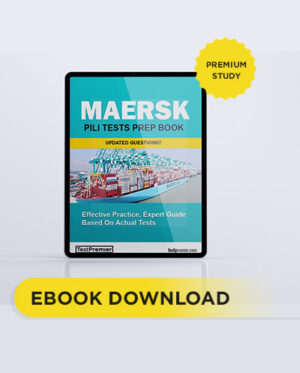About: FCA Graduate Practice Aptitude Test Pack 2024
Enhance your practice for FCA graduate assessment with extensive practice questions from the FCA Graduate Practice Pack, and featuring all the sections on the actual exams. This book provides insight into what to expect and helps you develop effective study strategies. Kick off your preparation with our (all-in-one pack):FCA Practice Aptitude Test Pack For 2024
- FCA Numerical test / IBM Kenexa
- FCA Verbal test / IBM Kenexa
- FCA Logical tests / IBM Kenexa
With step-by-step explanations on every questions, and hints on how to solve them faster.
About FCA company
FCA is an Italian-American multinational corporation and is the world’s eighth largest automaker. FCA offers graduate programs in a range of exciting business areas.
FCA Aptitude tests formats; What to expect:
FCA mostly uses IBM Kenexa-style tests for its candidate selection. The sections on the assessments may include any of the following test sections, depending on the role that you applied to and also the country you are applying from:
- Numerical Reasoning
- Verbal Reasoning
- Logical Reasoning
- Situational Judgement Test
- Personality Test
Handpicked Related Packs
- Nestle Graduate Assessment Practice Questions pack
- NGDP Graduate Assessment Practice Questions pack
- Procter-Gamble Graduate Assessment Practice Questions pack
- PWC Graduate Assessment Practice Questions pack
- SCHLUMBERGER Graduate Assessment Practice Questions pack
FAQ
Download from Account: Login to your Testpremier account at www.testpremiercom/my-account
Download from email. Simply open your email Inbox or Promotions folder to download.
If you need further support, email to support @ testpremier.com. We respond as fast as possible.





Tyler John –
FCA Practice Practice Aptitude Pack was useful, thank you @testspremier
Sarah O –
FCA Practice Pack was useful thank you @testspremier
Sarah O. –
Thank you @testpremier pack was good.